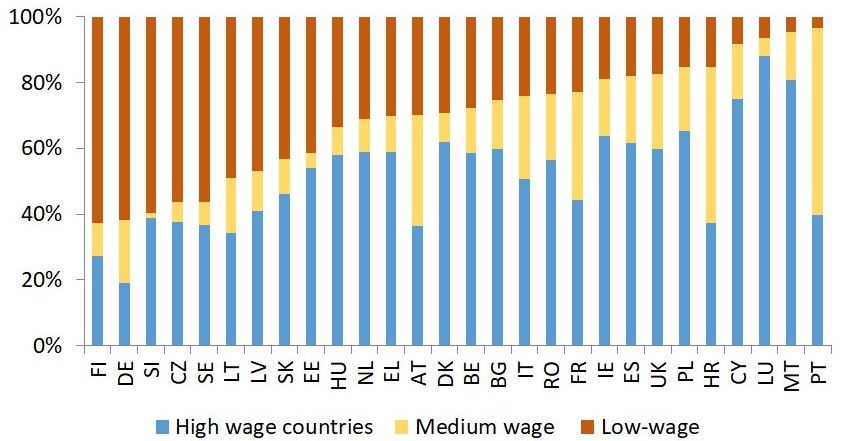27.09.2017
Union of Entrepreneurs and Employers has opened its Branch Office in Brussels
ZPP opened its Branch Office in Brussels on 26 September 2017. Finally, Polish companies of the SME sector can directly monitor their situation in the EU and defend our interests. Polish entrepreneurs face very difficult time. Many changes occurr in the EU’s architecture, and new threats for Polish companies emerge.
The celebration of opening was held in Sofitel Hotel at Place Jourdal. ZPP was represented by: Cezary Kaźmierczak, the president of ZPP, Marcin Nowacki, the vice-president of ZPP, and Agata Boutanos, the Head of the Branch Office of ZPP in Brussels. Among the invited guests, there were: Jarosław Starzyk, the Ambassador of the Republic of Poland to the European Union, and Zdzisław Krasnodębski, Member of the Parliament.
The President of ZPP, Cezary Kaźmierczak noticed “During this time of profound structural changes and discussions over the future of the European market, including labour market, Polish entrepreneurs need to have their hands on in Brussels.”
The main responsibility of the newly created office is to represent the interests of the sector of Polish enterprises. Influencing the shape of the European provisions at the stage of preliminary discussions and not, as it often happened in the past, after approving the stands of other countries should be the priority. ZPP also hopes for close cooperation with other foreign labour organisations in Brussels in order to build strong coalitions.
Within the actions concerning the European Union, ZPP declares:
• constant presence in the dialogue with the stakeholders of the decision-making process,
• support of the ZPP members in fulfilling the European agenda,
• long-lasting positioning and communication,
• organisation of the dedicated events, debates and trainings.
“Polish organisations become a constant element of our diplomacy in Brussels. We count on cooperation with ZPP”, said Jarosław Starzyk, the Ambassador of the Republic of Poland to the European Union.
Small and medium companies have drawn the attention of Polish diplomats and Members of the European Parliament to the necessity of participating in the dialogue with European institutions more actively. Starting today, the Office will actively advocate wider consideration of Polish interests and of interests of Polish economy from the entrepreneurs’ perspective.
As the MP Zdzisław Krasnodębski noticed: “Activity of Polish companies and entrepreneurs in Brussels is vital for building our position in the European Union.”
Agata Boutanos, the Head of the Branch Office of ZPP in Brussels, declares being open to cooperation with all Polish companies and institutions which need support in the European forum.
Our Office in Brussels has been listed on the website of Permanent Representation of the Republic of Poland to the European Union in Brussels: http://bit.ly/2wULTFp
***

 ZPP Newsletter
ZPP Newsletter














Recent Comments